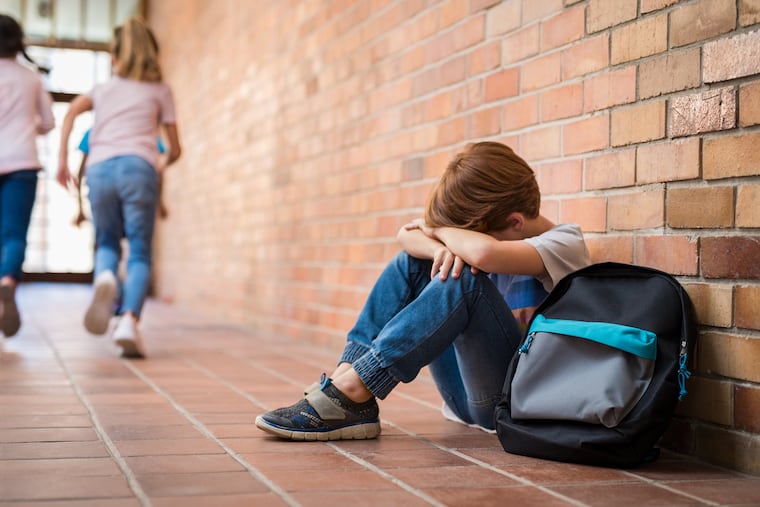Many teens struggle with COVID-19 anxiety and depression. Which therapy is best? | Expert Opinion
Mental health problems are real, not something that teenagers can “get over.” An essential part of getting better is psychotherapy.

Having déjà vu? We’re all seeing the headlines: 100,000 new COVID-19 infections a day… New infections climb back to winter levels …
Everyone is feeling stress, fear and anxiety — including our youth. The CDC reported that since the pandemic, pediatric emergency department visits for mental-health reasons have escalated across the country.
Some of our young patients are stressed that they will get infected and worry that they will bring it home to their parents and grandparents, especially as they go back to school. Some refuse to leave their homes and have chosen remote instruction for another year. Overwhelming worrying and fear interfering with daily life are symptoms of an anxiety disorder. As adolescent medicine specialists, we’re seeing increased anxiety disorders, including generalized anxiety disorder, post-traumatic stress disorder (PTSD), and obsessive-compulsive disorder (OCD).
PTSD results from exposure to trauma and involves persistent distress or fear, avoidance of things that remind them of the trauma, and mood changes. PTSD may result from witnessing someone die from COVID-19, or just living through the pandemic. People with OCD have persistent intrusive and unwanted thoughts, such as believing that they either have or will get COVID.
Some adolescents can’t sleep, feel sad all the time, and stay in their rooms. One patient told us, “I quit the cross-country team. … I don’t keep up with my friends anymore.” This is not normal teenager moodiness; it’s depression.
During adolescence, teens’ bodies change, and body image develops. Many gained excessive weight during the pandemic as sports were paused and they spent more time indoors. At the Nemours Eating Disorders Evaluation and Management Program, one patient told us, “I felt really big. ... I started to exercise, then I started skipping meals, and then I started to purge.” Nationwide, eating disorders have become more common during the pandemic, and hotline calls to the National Eating Disorders Association increased 70% to 80% compared with pre-pandemic levels.
You may not know these teenagers, but you may know others who are suffering, and maybe one is your very own. Another heartbreaking concern: We have seen an increase in suicide attempts this year.
Mental-health problems are real, not something that teenagers can “get over.” An essential part of getting better is psychotherapy. Therapy can help teens understand their issues, resolve problems, modify behaviors, and make positive changes in their lives. There are many types of scientifically backed psychotherapy that involve different approaches. Here are some options:
Cognitive behavior therapy (CBT) combines cognitive and behavioral therapies and has been found to be the most effective treatment for children and adolescents with anxiety and depression. People with these problems often have distorted patterns of thinking that lead to distress and dysfunctional behaviors. CBT addresses these self-defeating patterns of thinking that have become automatic; it helps patients correct and reframe these thoughts. In addition, CBT helps people learn how to cope with the symptoms of their condition and teaches relaxation techniques.
Dialectical behavior therapy (DBT) is often used to treat older adolescents who have chronic suicidal thoughts and who harm themselves. DBT helps examine how they deal with conflict and intense negative emotions and helps them learn coping skills through mindfulness and emotional regulation. DBT often involves a combination of group and individual sessions.
Family-based treatment (FBT) is a specific type of family therapy and is considered the gold standard in treating anorexia and bulimia nervosa. FBT is based on the understanding that eating disorders take over teens’ thoughts and behaviors and prevent them from making rational and healthy decisions about food, exercise, and their body. FBT empowers parents to play an active role in helping their teenagers restore weight, externalize the disorder, and normalize their eating habits. FBT is divided into three phases aimed at gradually returning control to teenagers.
Interpersonal therapy (IPT) is a brief, diagnosis-targeted treatment used to help people with depression and other psychiatric conditions. IPT focuses on how interpersonal relationships affect a person’s emotional state and addresses problematic relationships. IPT helps patients solve interpersonal crises and identify their social supports to improve their symptoms and their lives.
Our advice: If you notice any changes in your teenagers’ mood, start by discussing these changes with their primary-care provider. Sometimes, both psychotherapy and medication are needed. Therapy is a process; over time it can reduce symptoms, provide insight, and improve quality of life.
Rima Himelstein is an adolescent-medicine specialist and Bailey DeLong is a master’s level social worker at Nemours Children’s Hospital, Delaware.